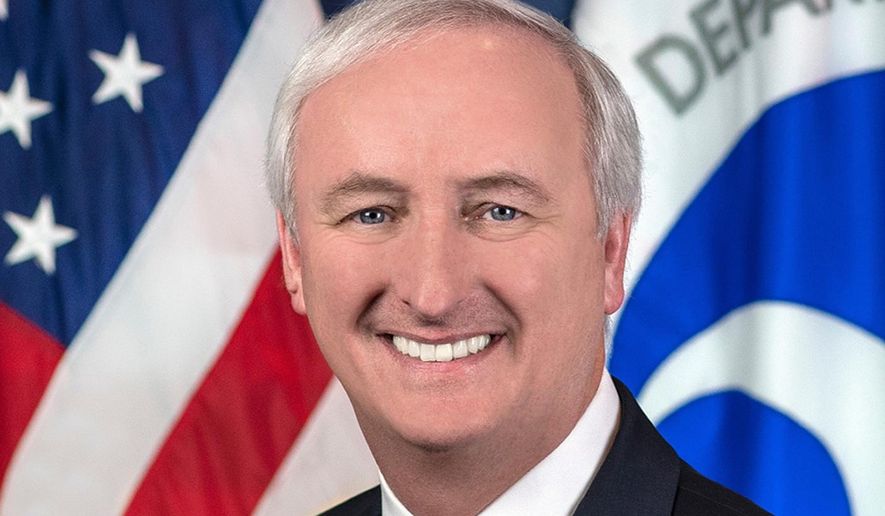The man nominated for the Justice Department’s No. 2 job refused to make a firm commitment on how he will handle ongoing probes branching out from Robert Mueller’s investigation as he resisted calls from Democrats to support the full release of the special counsel’s report without any redactions.
Jeffrey A. Rosen, picked to be deputy attorney general, said it will be up to Attorney General William Barr to figure out how to handle the report and future investigations into President Trump.
Democrats on the Senate Judiciary Committee repeatedly tried to pin down Mr. Rosen.
Sen. Richard Blumenthal, Connecticut Democrat, said he wouldn’t vote to confirm Mr. Rosen without a firm commitment that he will advocate for releasing the full report.
Mr. Rosen, currently the deputy secretary of transportation, said it’s not up to him. The nominee said he wasn’t being evasive but wanted to avoid saying something that could be misconstrued.
Becoming frustrated, Mr. Blumenthal questioned the nominee about his commitment to protecting ongoing investigations involving the president, such as an investigation apparently underway by the U.S. attorney’s office in the Southern District of New York.
Although he stopped short of giving a full commitment, Mr. Rosen did signal that he would reject requests from the White House and Congress to interfere with the ongoing probes.
“I am going to do the right thing in accordance with the law and the rules, and the ethical requirements at every juncture,” he said.
Mr. Blumenthal said he wanted firmer guarantees.
“You never served as a prosecutor. You have no background at the DOJ. You have no credibility as a prosecutor or law enforcement official,” the senator said. ’We need a firm, unequivocal commitment that you will protect those offices from any improper influence.”
Other Democrats also noted Mr. Rosen’s lack of prosecutorial experience.
Sen. Dianne Feinstein of California, the committee’s ranking Democrat, highlighted the decades of high-profile prosecutions by the current No. 2, Deputy Attorney General Rod Rosenstein. She said such a background was imperative because of Mr. Trump’s “calls to investigate political rivals.”
Mr. Rosen highlighted his background as a private litigator and the legal work he did in President George W. Bush’s administration. He also worked as a white-collar attorney representing Fortune 500 companies and practiced in appellate court.
He said his “varied” legal career and experience in two different government agencies would translate to the Justice Department job. He also pledged to install a support staff with significant prosecutorial experience.
“I would bring those experiences to bare in both a managerial standpoint and a legal standpoint,” Mr. Rosen said.
Sen. Chris Coons, Delaware Democrat, noted that previous deputy attorneys general without prior prosecutorial experience all served before 9/11. He wondered if Mr. Rosen could manage high-profile terrorism cases.
The nominee said that during his time at the Office of Management and Budget in the Bush administration he participated in meetings regarding the renewal of the Patriot Act.
Lawmakers on both sides pushed to learn more about his positions on Trump administration policies, including the decision not to defend the Affordable Care Act, immigration and criminal justice reform.
Mr. Rosen was willing to make a firm guarantee to enact the First Step Act, legislation that reversed decades of “tough on crime” sentencing polices and which Mr. Trump signed into law last year.
Sen. Mike Lee, Utah Republican, said some members of the Justice Department don’t like the law and are working to undermine it.
Mr. Rosen said that wouldn’t be his approach.
“I am not someone who has any interest in undermining or impeding or half-heartedly going about this,” Mr. Rosen said, adding that he “would like to see it done right” and he is “not one of those” who doesn’t care about the law.
• Jeff Mordock can be reached at jmordock@washingtontimes.com.




Please read our comment policy before commenting.